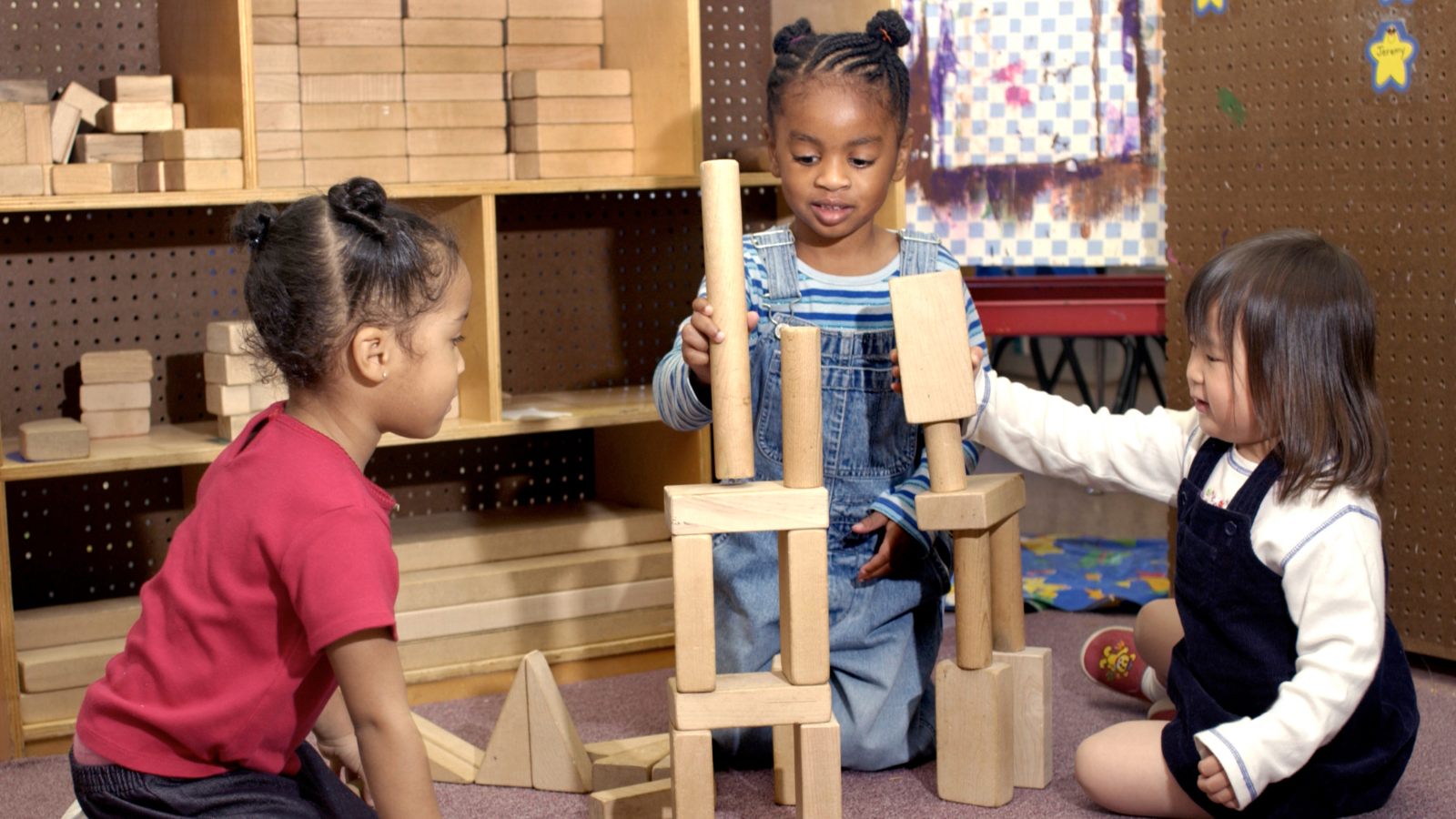
Children go through six stages of play as they develop, and their skills advance in every stage. This last stage, cooperative play, involves children being able to cooperate with others on the playground or during school projects.
This article will discuss all the ins and outs of cooperative play, including what it is, its benefits, how to recognize it, and how you can support a child at this stage.
What is cooperative play?
Cooperative play is the final stage of play as described by researcher Mildred Parten. Parten believed that play is key to a child's development as they learn academic skills like math, language, and literacy and essential social skills like cooperation and collaboration with peers. Her research identified six stages of play that children progress through as they grow. These stages are unoccupied play, solitary play, onlooker play, parallel play, associative play, and cooperative play.
The last stage of play, cooperative play, involves children playing together to solve a problem or work on a project to achieve shared results. Unlike competitive games where there is a winner or a loser, children work together towards a common goal during cooperative play.
Difference between cooperative play and associative play
Associative and cooperative play may seem similar because they involve children engaging with each other. However, the two stages of play are different in terms of organization and rules.
Associative play is a child's first attempt to play with other children. During this stage, children can share toys, talk during play, or do things together like running around the same outdoor area without competing. However, these activities have no organization as every child is focused on their own actions.
On the other hand, during cooperative play, children show interest in each other's activities and can work together to achieve a common goal. Unlike associative play, activities in this stage are organized.
When does cooperative play happen?
While all children move through the six stages of play at a different pace, most children transition to cooperative play around four or five years old.
A child is ready for this stage when they can understand how to accept roles during play, exchange ideas, and share toys. They also learn to respect other children's property and follow the rules for each game they play.
Why is cooperative play important?
Play has a powerful role in a child's healthy development. Through play-based learning, children can explore how the world works and discover more about themselves. They develop important skills in a hands-on way and can pursue their own curiosity without rules or end goals. Below we illustrate some of the benefits of cooperative play.
Encourages collaboration
Collaboration is important for a child academically and socially. Cooperative play teaches children the need to cooperate and learn from others instead of competing with them.
When working with others, a child can observe their peers and learn a new perspective on doing things. This occurs when doing activities like linking different pieces to get final results or building structures by adding pieces in turns.
Teaches trust and conflict resolution
When children play together towards a common goal, they must trust their peers to do their part right. As children watch their peers work on their parts, they learn their strengths and weaknesses and support each other.
Also, although children in this phase know how to share and follow the rules, they still have conflicts. Cooperative play helps children learn how to communicate about a problem, compromise, and come up with acceptable solutions for everyone.
Helps develop self-regulation
Cooperative play requires children to learn how to manage their emotions, like dealing with disappointments after a loss. Also, when children play in turns, they have to practice patience and wait for their time to participate.
This important skill spreads to other parts of their daily lives. For instance, you might realize your toddler is now patient enough to finish homework before playing with their toys.
Boosts communication skills
Cooperative play requires a child to express their desires and needs and hear out their playmates. Children learn that if they don't communicate or listen, the game doesn't go as smoothly and might not be as enjoyable.
As a child grows, they continue to redefine communication through play and carry it to other parts of their lives.
Introduces empathy
During cooperative play, every child has a role to play to get the desired results. As children divide the roles and set the rules, they learn to think from each other's perspective to ensure everyone enjoys the game. The lesson that every child experiences a similar situation differently is the first lesson of empathy.
Examples of cooperative play
Here are some examples of cooperative play. We've divided them into the five key features of cooperative play: social interaction, shared goals, language use, self-regulation, and agreed rules.
Social interaction
- Negotiating
- Compromising
- Assigning each other roles
- Working together as a group
Shared goals
- Children using blocks or sticks to build a structure together
- Children playing board games where players are on the same side
- Children deciding what game to play and agree on what defines success
- Children working on different tasks for a common goal
- Children playing together in turns
Language use
- Practicing new words
- Answering questions in complete sentences
- Asking questions from their friends for clarification
- Children demonstrating and describing what they're doing to their peers
Self-regulation
- Delayed gratification as they wait for their turn to play
- Absorbing disappointment after losing
- Allowing other children to take up roles they like for the game to continue
Agreed rules
- Children amending rules or following the rules
- Children coming together to set rules for a game
- Children agreeing to follow the rules
How to promote cooperative play
Here are a few ways you can promote cooperative play:
- Be a good example. Children are keen observers, and they take cues from adults around them. Learn to practice kindness and empathy in front of children.
- Encourage activities that require taking turns. This may involve waiting to play with a toy or taking turns to use the play equipment at the playground or playing a board game.
- Make up a dance together. Encourage your child to help create choreography for their favorite song.
- Create something as a group. Take turns to build a tower with blocks or a fort. Children will learn to work together towards a common goal.
- Plant a garden. Children will have to work together to decide what to plant and cooperate in caring for the garden.
- Promote pretend play. Encourage children to engage in pretend play or imaginary scenarios like a pretend “restaurant” where children can take on different roles such as waiter or diner.

